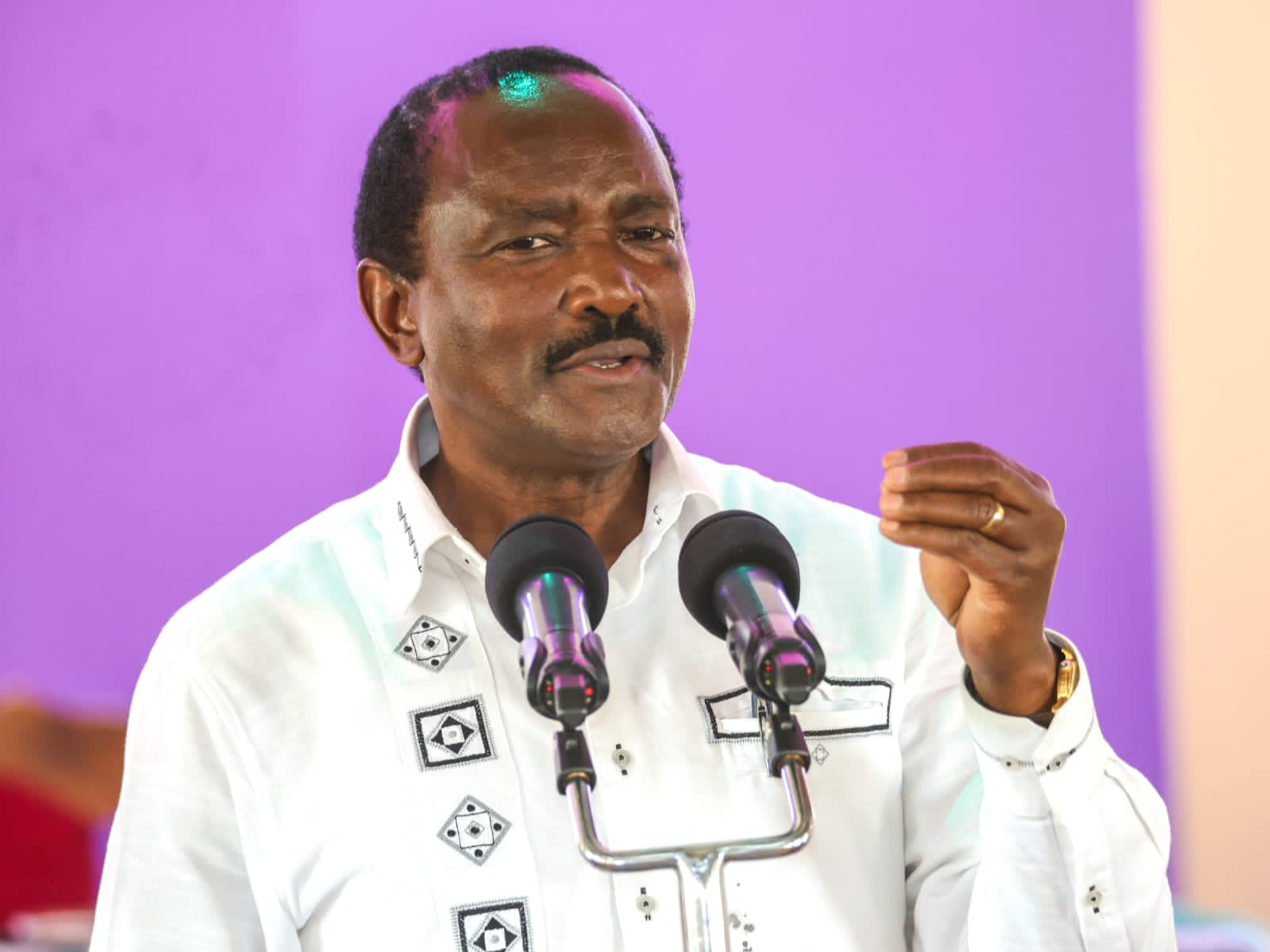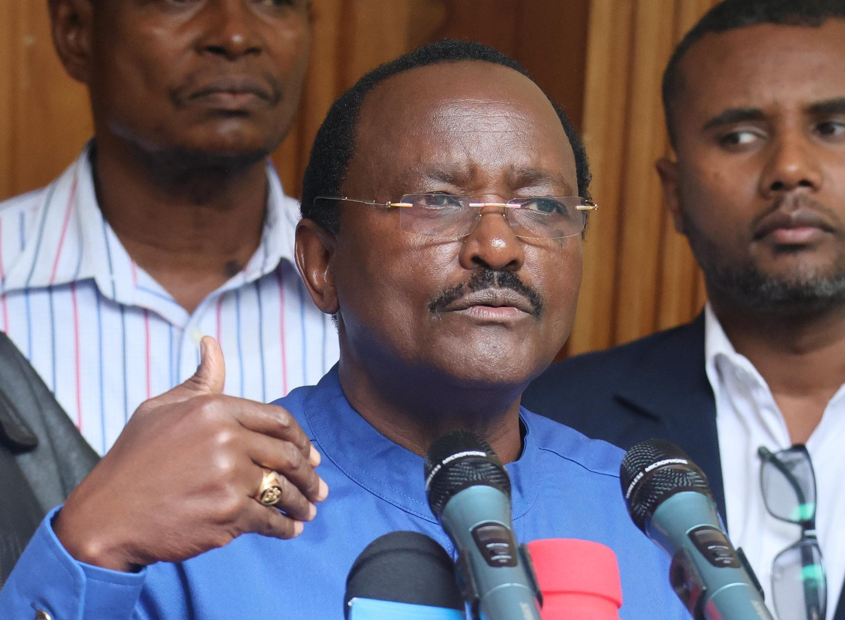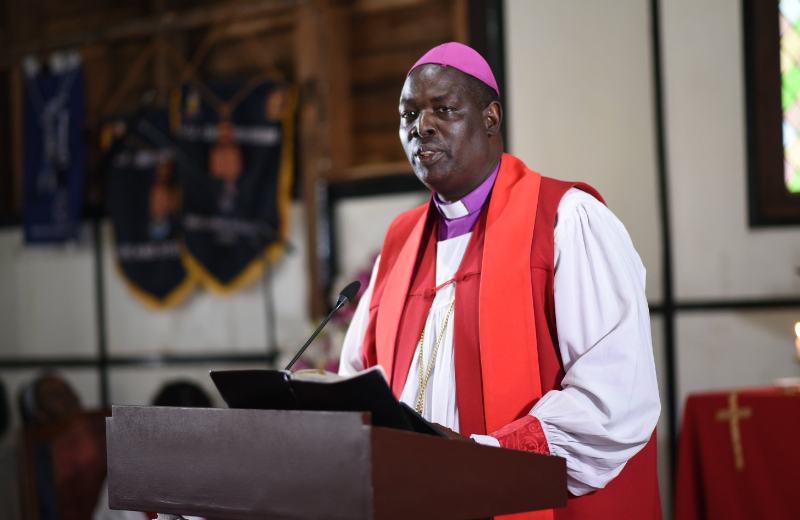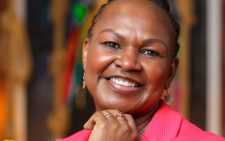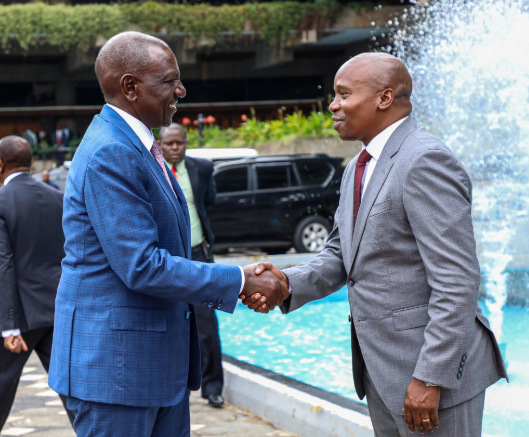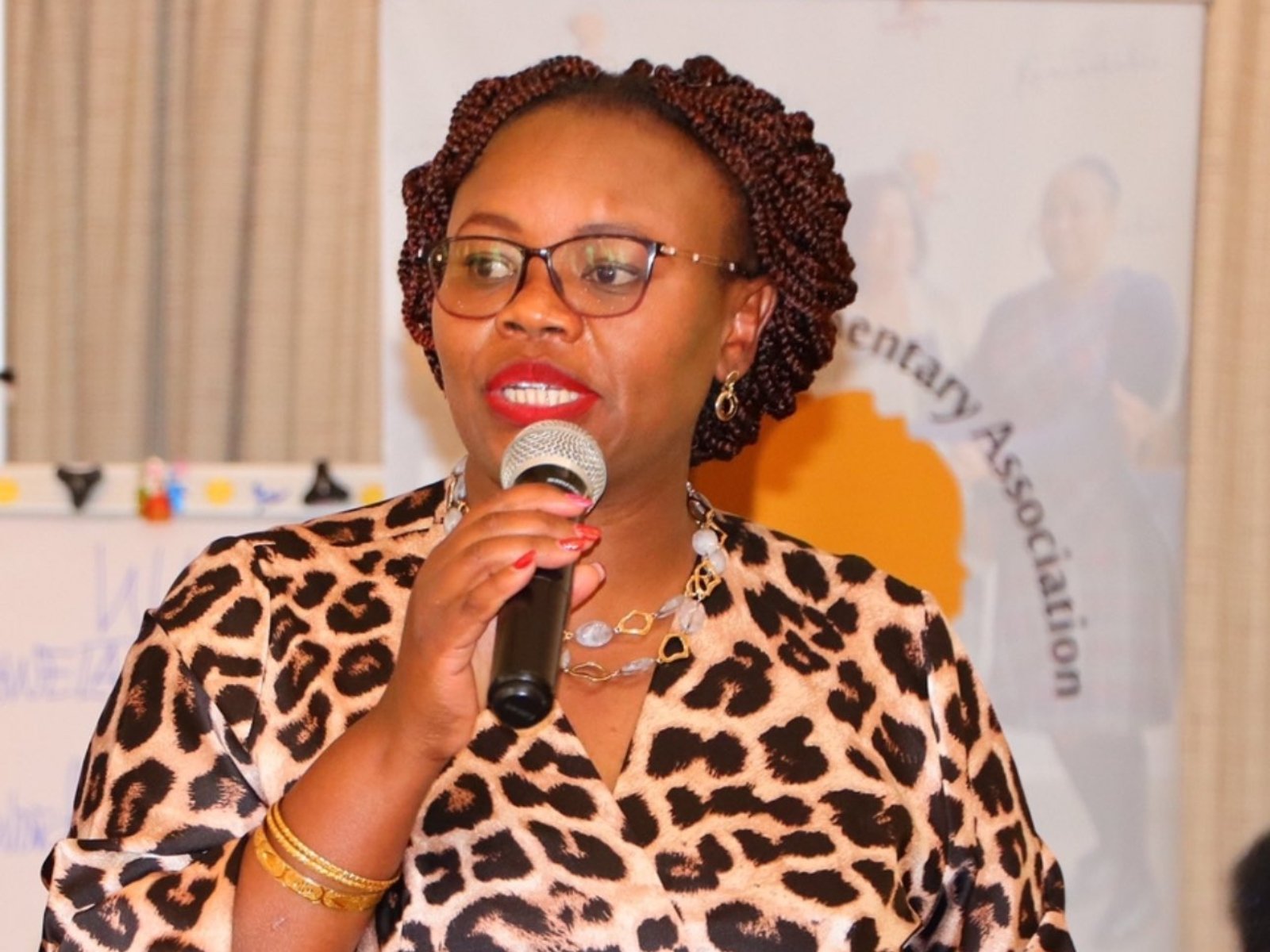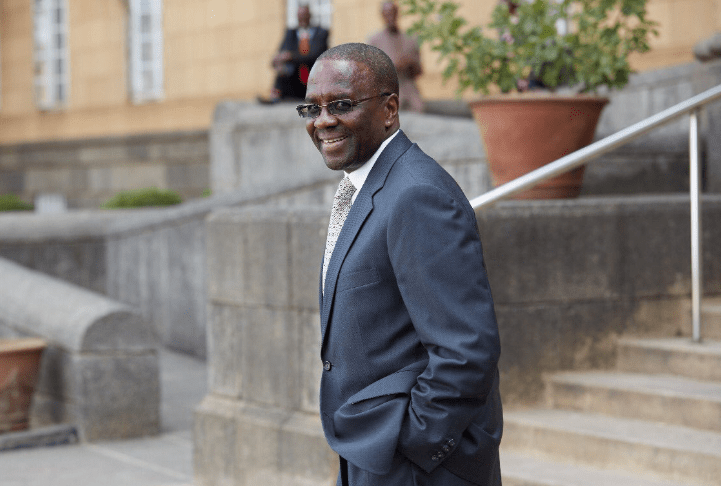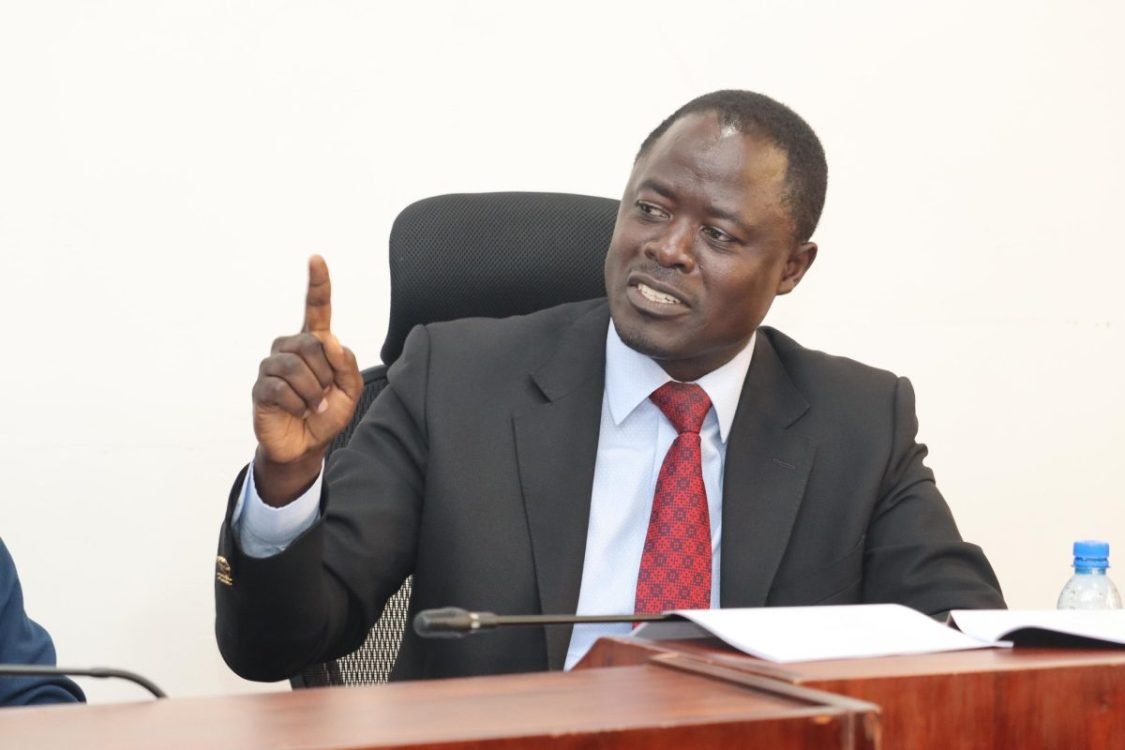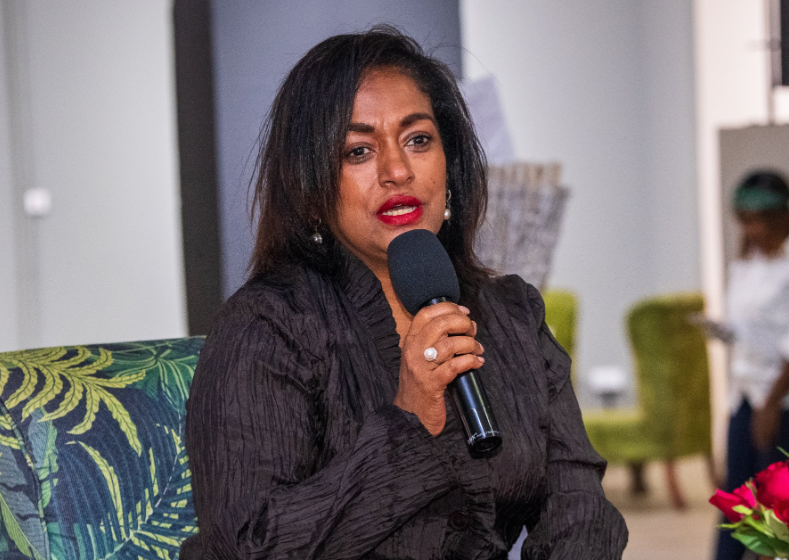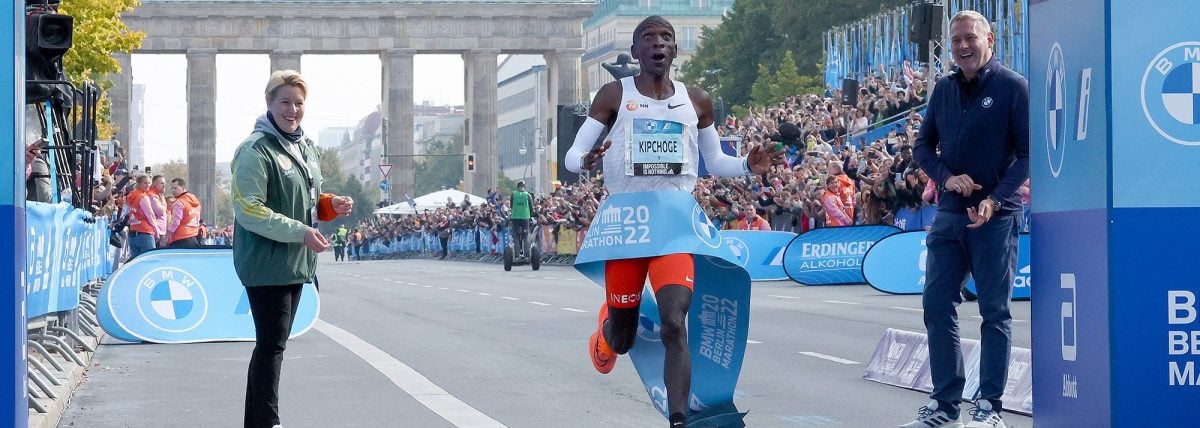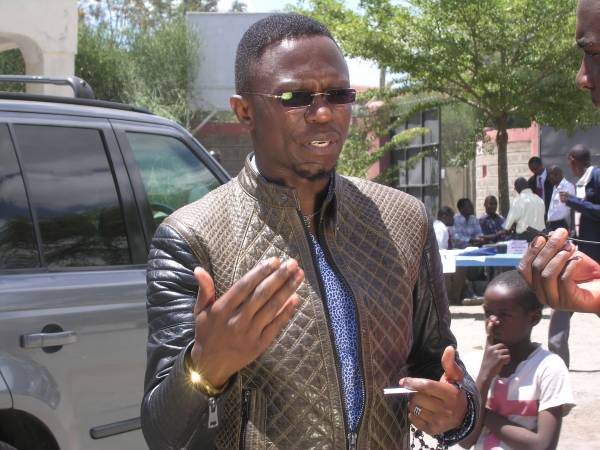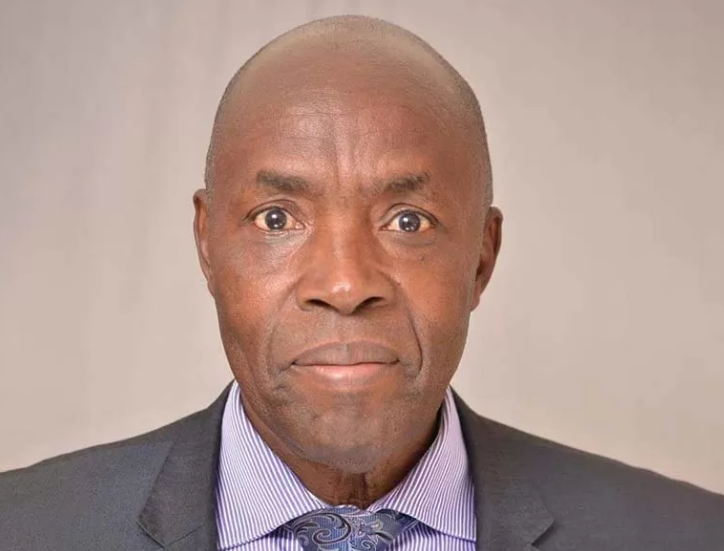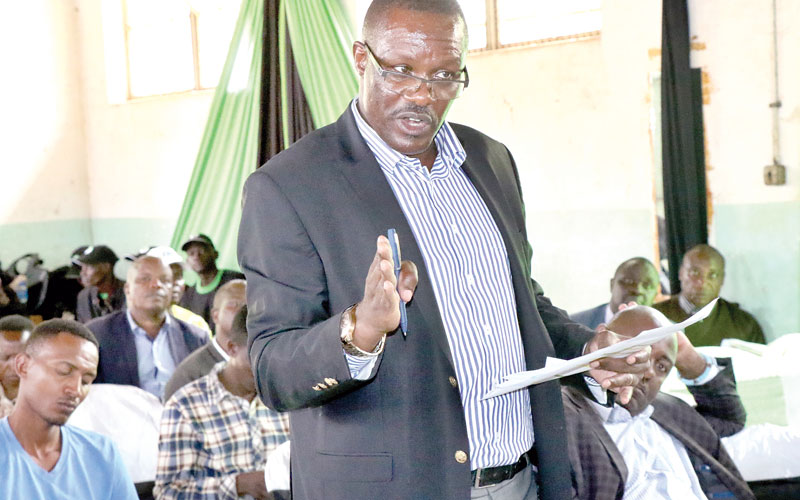Electoral agency says it is all set for tomorrow’s polls
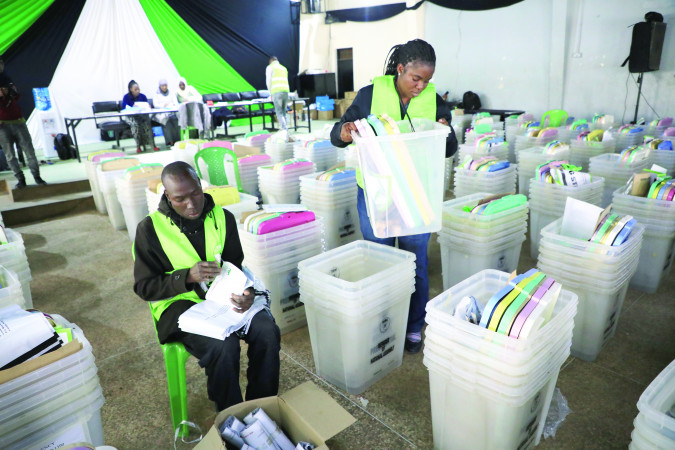
The electoral commission has been racing against the clock to ensure voting materials are in the right polling stations by tomorrow morning as Kenya undertakes one of the most expensive elections in Africa.
Polling stations will open at 6am and close at 5pm tomorrow with at least 80 per cent of the 22.1 million voters expected to cast their ballots.
The Independent Electoral and Boundaries Commission (IEBC) will be seeking to deliver a foolproof exercise after pumping over Sh40 billion into it and banking on technology to ensure the process is accountable, verifiable and efficient.
Yesterday, the commission said it was ready to conduct the election that might attract the highest participation in the country’s history. Besides the high number of voters, there are over 14,000 candidates eyeing various seats, from Member of County Assembly to President.
“All systems are set and we are ready to take off on Tuesday 6am. We have ensured that all materials needed are in the 290 constituencies across the country and we are not waiting for any other materials,” IEBC commissioner Boya Molu told People Daily. “All ballot papers have been received and dispatched to constituency tallying centres. Everything is on the ground.”
Voter turn-out
The two presidential frontrunners—Azimio-One Kenya candidate Raila Odinga and Deputy President William Ruto—have spent the last weeks urging their supporters to turn up in large numbers and vote.
With opinion polls showing a tight race between the two, voter turn-out is set to play a big role in determining a winner.
In 2017, Kenya recorded an 80 per cent voter turnout, which was fairly lower than the 86 per cent recorded five years earlier in 2013.
This year, being a transition election, is likely to register a high voter turnout as President Uhuru Kenyatta’s tenure is coming to an end after serving ten years.
Pundits expect a turnout within the 80 to 86 per cent range, probably higher in stronghold areas.
IEBC will spend Sh40.1 billion on the elections. The amount is lower than the record Sh45 billion the commission spent in the 2017 elections that remains the country’s most costly election in history.
Kenya had two presidential elections that year after the Supreme Court nullified the first one. Notably, the commission spent approximately Sh36 billion during the 2013 election, the first after the promulgation of the 2010 Constitution.
On average, IEBC will be spending about Sh1,800 per voter this year. This is considerably high compared to what other African countries have been spending on elections.
For instance, in 2021 Uganda spent around Sh1,200 per voter while Zambia spent Sh500 per voter for its general election last year. With its massive population, India invested approximately Sh900 per voter for its elections in 2019.
The purchase and calibration of voter identification and result transmission kits, the high number of election officials and the printing of ballots outside the country are among the factors that increase the cost for IEBC.
Both were undertaken to ensure the elections are credible in line with various court rulings on how elections should be conducted.
IEBC has in the past defended the budget, saying it was necessary to ensure free, fair and credible elections although it has faced perennial criticism about its choice of suppliers.
The commission spent a huge chunk of its allocation on paying thousands of personnel who conduct the polls, from registration clerks during recruitment of voters to election officials, such as returning and polling officers.
For this election, IEBC has employed 52,481 presiding officers, and a similar number of deputy presiding officers. It also has hired 302,860 polling clerks.
This in addition to the county and constituency returning officers and deputies.
The official campaign period ended on Saturday, when Raila and Ruto held their final rallies in Nairobi and Kiambu.
Yesterday, each attended church services in Nairobi.
The two asked Kenyans to remain peaceful although they subtly promoted their candidatures as each exuded confidence he will be the country’s fifth president.
Ruto, who is flying the United Democratic Alliance flag, attended a church service at Jesus Teaching Ministry in Kayole, Nairobi.
“We have faced many challenges,” he said. “Some said we would not participate in these elections, that there is a Deep State and system but we have come this far because of our trust in God.”
He also urged voters to be peaceful.
“Each Kenyan wherever you are, whatever you do be a peacemaker, it is the qualification to become a son and daughter of God,” he said.
Raila attended a church service at the Kenyatta International Conference Centre, where he said his main interest was a peaceful nation devoid of corruption and tribalism.
“Without slaying the dragon of corruption, we cannot deal with the other three enemies of our country”.
Rallying call
Other leaders asked Kenyans to turn up and exercise their democratic right tomorrow.
“The moment of truth is here. Let us all step forward,” said Musalia Mudavadi of Kenya Kwanza.
“During the final rallies on Saturday, Raila and Ruto promised their supporters a first-round win.
The Azimio leader was at Kasarani Stadium, where Tanzanian bongo star Diamond Platinumz entertained the large gathering.
“The fighters for a better Kenya are on this side. We are not running to simply win an election, we are running to make Kenya a first-class economy, to build a Kenya of hope and opportunity,” said Raila.
Ruto was at Nyayo Stadium for the Kenya Kwanza’s rally before heading to Kirigiti Stadium for a final rallying call.
At Nyayo, he said: “Don’t sell your birthright, don’t sell your vote, don’t sell the future of your children. Go vote for the leadership that has a plan to take you, your family and your country into the future.”
The other two presidential candidates, George Wajackoyah (Roots Party) and David Mwaure (Agano), also campaigned in Nairobi, asking supporters to come out and vote for them.
Wajackoyah, however, urged voters to pick any of the four presidential candidates that they thought had impressed them.
